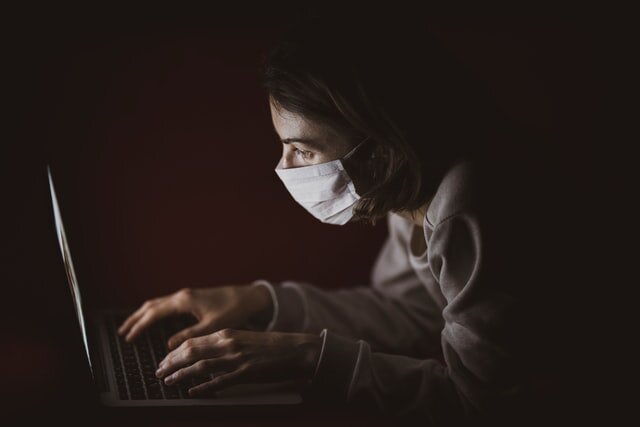How to Manage Your Anxiety During COVID-19
Anxiety disorders affect nearly 40 million people in the U.S. every year according to the Anxiety and Depression Association of America. The global pandemic we are all facing has worsened anxiety conditions for a lot of people and even induced severe stress and anxiety in people without previous anxiety issues.
Life looks very different right now and adjusting to new daily routines as well as dealing with the uncertainty of the situation is tough. There are many factors influencing peoples’ anxiety levels from finances and kids to isolation and concerns for loved ones. It all takes a toll on your mental health, which is why it’s important to learn how to manage your anxiety during COVID-19. Below are some suggestions for reducing anxiety and coping with the stress you may be feeling.
Acknowledge your anxiety
The first step is to acknowledge your anxiety and what may be causing it. Obviously, there are several different concerns on your mind, but pinpointing the specific triggers can help you understand what’s increasing your stress levels. Once you recognize the main factors causing your anxiety, you can start managing it a little better.
Stop obsessing over the news
Staying informed is important, but obsessively checking the news for updates on the coronavirus is not helpful. All you need to know are the latest updates in your community as well as the progress of cases and safety precautions. When you’re looking for information, make sure you go to trusted resources that are less likely to spread misinformation or sensationalize events such as the CDC or the World Health Organization.
If you start to feel overwhelmed when reading COVID-19 updates, then step away and give yourself a break. It might also be helpful to step a specific time limit to your news reading such as 15 to 30 minutes each day. This way, you can learn the latest information and ensure your anxiety levels are kept in check.
Recognize what you can control
The number of uncertainties around coronavirus can make it feel like your life is a little out of control. Shift the focus away from situations you can’t control such as COVID case numbers and whether or not a family member will contract the disease. Instead, pay attention to what you can impact, such as reducing your risk for catching the illness and dropping off groceries to your parents. A few other things you can do include avoiding crowds, following safety guidelines, and making sure you get enough sleep every night.
Create a new routine
Schedules and routines are comforting but most routines have completely disintegrated. People are staying up until 2 a.m. and floating from one day to the next. Get a schedule put in place for you and your family. Create set bedtimes, have meals at the same time each day, and create a list of chores/activities that are done on different days of the week.
A regular schedule will make your days feel less chaotic and it’ll also make it a lot easier to manage your household, particularly if you have kids. Children need structure in their days so creating designated times for reading, playing, and chores will help them feel less restless during the day.
Start exercising
We all know the gyms are currently shut down, but exercising is an excellent way to reduce stress and anxiety. Sitting at home all day is not good for your mental or physical health. Choose an activity that will give you at least 20 to 30 minutes of exercise every day. It could be as simple as taking a walk around your neighborhood or doing some jumping jacks during your favorite TV show. All that matters is that you get up and move your body so your muscles can stretch and your heart rate can increase.
Talk to someone
Sometimes, all it takes is discussing your feelings with a friend to provide some relief to your anxiety. Connecting with another person over the phone or through a video chat can help you feel less alone and isolated. It’s also a good reminder that you’re not the only person experiencing anxiety and navigating these new situations.
If your anxiety is becoming a problem and not easily remedied by a discussion with a loved one, then it may be time to seek help from a professional. A lot of people are turning to therapists right now to help with anxiety counseling. Extra help managing your stress and worries is always beneficial, so if you think you need help, then contact me to schedule an online counseling appointment. You can still get the help and support you need while staying safe during this pandemic.



